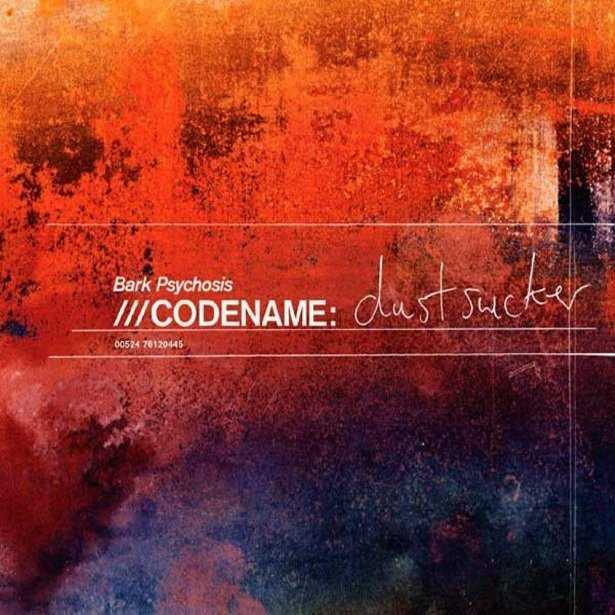Virtually escaping as opposed to being released, by the time Codename: Dustsucker arrived in 2004 much had happened to the people it should have affected the most.
The Bark Psychosis which had recorded its predecessor – the seminal and truly ground breaking Hex – were no more, as only founding member Graham Sutton remained with other prime movers John Ling and Mark Simnett having left for reasons which to this day are shrouded in a perma-murk of obfuscation and pseudo estrangement.
Hex was the record which, through the coinage of the erstwhile Simon Reynolds, the term post-rock was first used to describe; an awkward at best metaphor which came to blanket-cover a canon of artists who were unable or unwilling to sit inside the tent of familiar instrumentation, time signatures or rhythms. By the time its follow up appeared, the reclusive cabal originally in charge weren’t now just an isolated clutch of like-minded innovators but rather unwilling heirs to a full blown sub-genre, awkwardness and a lack of definition still the most its recognisable outliers.
This time though the joke was on us, as rather than staying true to some of the more obtuse tenets of those who’d followed, Sutton’s lone vision for Bark Psychosis featured passages of distressed melody – the vulnerable but intimate chime of The Black Meat, Burning The City’s sunset piano and becalmed elegance – in amongst the aural concrete and rubble of an east London surround being erased in front of his eyes.
In places this makes for a jamming, open sense of discord. INQB8TR ushers in waves of fuzz, whispers and intricate almost-stillness, a love affair in a dozen different parts for two people who will never meet directly, like telling secrets to a staircase. Precedents remained few, although Codeame: Dustsucker is distantly related to its predecessor if little else (although the gorgeous insouciance of 400 Winters was a take on the monochrome jazz-pop of Stereolab at their chic, knowing best).
Whilst these passages are more evocative than previously it was thought possible for a sound which favoured abstraction and art over performance, the undertow here was in syncopation, the tumbling hits of Talk Talk member Lee Harris but also through the ‘found drumming’ contributed by Simnett. Pervasive, on takes like Shapeshifting it simply refuses to be confounded, protecting the instrumentation around it, a bulwark against the outside world’s flat surfaces and narrow lines.
This travelogue only relents on closing track Rose, a near beatless intermezzo of scraped noises and discombobulated words that convey both the confidence and fear felt by Sutton as, for five years, he continued to pioneer in solitude during an age when largely that was no longer possible.
Uncompromising, it appears there is one convention that it is willing to follow though, that of the reissue. Whilst little can match the nostalgia-fervour of an industry which at times appears to be lapping itself, even accounting for the lack of any new material as justification for familiarising yourself with Codename: Dustsucker, you still absolutely should. Few people make music accidentally this potent anymore; there is only intent and calculated risk.
Bark Psychosis remain not so much an enigma but a cruelly ignored phenomenon, one now that it’s easy to believe were never really there.





